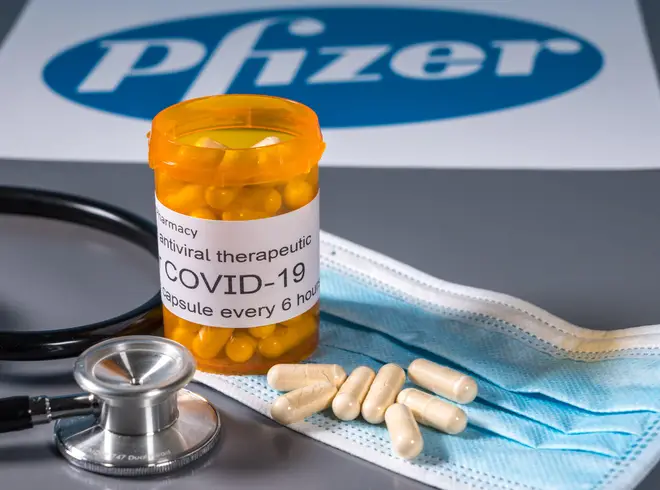
Richard Spurr 1am - 4am
1 September 2021, 17:06

The first patient has been given a dose of an anti-viral pill in a clinical trial by Pfizer - designed to stop coronavirus replicating once people start showing symptoms.
The drug, which has entered mid-to-late-stage trials, is intended to be taken when individuals first start to show symptoms of Covid-19.
Around 1,140 participants have been enrolled in the randomised, double-blind patient trials. Those involved will receive either the pill or placebo every 12 hours for five days.
The pill is designed to block the activity of a key enzyme that is needed for coronavirus to replicate.
It comes as Pfizer has been up against the US-based Merck & Co Inc and the Swiss Roche Holding AG to develop the first anti-viral pill against the disease.
To date, Gilead Sciences Inc's remdesivir, administered intravenously, is the only approved antiviral treatment for Covid-19 in the United States.
Read more: Mu: New Covid strain designated variant of interest by WHO
Read more: Teenage Covid victim branded 'Satan' by anti-vaxxers for telling youngsters to get jab

Pfizer-BioNTech Covid-19 vaccine approved for use in 12 to 15-year-olds
The study is part of "a global clinical development programme, consisting of multiple ongoing and planned clinical trials" to evaluate the potential use in a broad population of patients, the pharmaceutical company said.
If the trial proves successful, Pfizer suggested in July that it would file for potential emergency use authorisation further down the line.
The company's chairman, Albert Bourla, tweeted that he was "pleased" to share that trials had moved forward for the pill specifically designed to combat Covid in non-hospitalised, low-risk adults.
Trials for those at an increased risk of progressing to severe illness if they caught Covid began in July.
Meanwhile, Pfizer's clinical trials for the pill first began in March 2021.
More than 90 million Brits have been vaccinated against the virus so far, with booster jabs also expected in coming months for those most vulnerable.